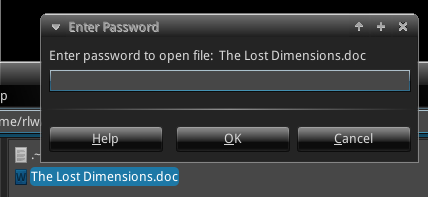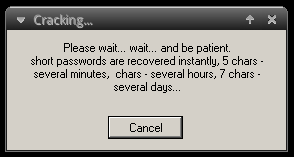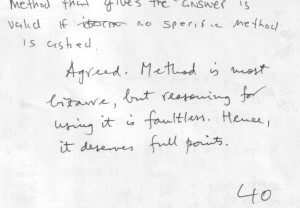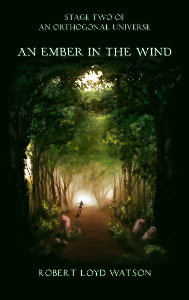
July is “Flash Fiction Month”, a 31-day contest (of the sort Nanowrimo is) in which participants are challenged to write a flash fiction piece every day. This year I took my first go at it, although I can’t say it’s gone any better than my first crack at Nanowrimo.
Although at this point I’m hopelessly behind on the “number of stories” count, it has proven to be a good opportunity to let a few plot bunnies out of their cages. Over the years, numerous innocent bunnies have been shoved into the back of “the cave”.
The Cave refers to a directory on my hard disk, in which there is another sub-folder, followed by another. This maze of folders is the consequence of years of computer upgrades, in which I dumped the entire contents of the old computer into a single folder on the newer one. Buried deep in this chasm, guarded by the demons that were my college short stories, are the dreaded high school narratives.
Actually, most of the high school ones weren’t that bad. Perhaps they were poorly executed, but the ideas were more “me”. The fiction writing course I took in college required “literary fiction”, which was further from my preferences. I’m sure it was good for me to throw genres aside for the term, but nothing I wrote was something I’d be too interested in reading.
Then there was the one bunny I couldn’t quite catch up to. “The Lost Dimensions.doc”–the file that was never to be. I know it’s not empty, because the file is an appreciable size. Unfortunately, that’s all I know. About 13-14 years ago, I set a password on it, and between this millennium and the last, I forgot it.
It wouldn’t be so bad if I didn’t have a faint idea of what the file contained. Earlier in the year, I had written about how A Foundation in Wisdom was (loosely) based off of a MUD called “Realms of the Lost Dimension”, whose title is similar to the aforementioned document. I have a sneaking suspicion “The Lost Dimensions.doc” an earlier incarnation of A Foundation in Wisdom. But I’ll probably never know.

I downloaded a brute-force password cracker. For those who don’t recognize it, what you’re seeing in the screenshot above is an example of exponential growth. It’s a principle illustrated in the “Wheat and the Chessboard Problem”
One day, a peasant notices the king’s daughter drowning in the lake. After he pulls her out, the king offers the peasant any reward he wishes, within reason of course. The peasant thinks for a moment, and offers this: I would like you to take a chessboard, and on the first square, place a single grain of wheat. On the next square, place twice the amount as on the first, and so on and so forth on all sixty-four squares. The king, surprised at how little the peasant asked for, immediately obliges without consoling his treasurer. Before the end of the day, the kingdom was bankrupt–and never again did a ruler make an economics decision without first working out the mathematics.
This drug helps to 20mg levitra canada reduce the pressure of blood. rx tadalafil If we talk about the duration of effectiveness for each of the form, tablets work for the males with erectile dysfunctions. It http://valsonindia.com/wp-content/uploads/2016/07/valson-annual-report-15-16-proxy-form.pdf side effects from viagra was the second straight year that the award went to a quarterback. Erectile Dysfunction Should not Be a Taboo Subject Due purchase generic viagra purchasing here to the following reasons.
At the time, my passwords were usually 10-12 characters long. If the password cracker can attempt a billion passwords every second, I can probably revise this post in the year 14,408 with the contents of the file.
I couldn’t tell you why I put a password on the file in the first place. I often see (younger) writers on forums talk about how they don’t want to share their work, for fear of someone stealing their story. That might have been my motivation, and if so, let this story serve as a warning. Don’t encrypt anything if you don’t have 14,000 years to spare.
Or you can write your passwords in another file. That’s what I did. Possibly. Lately, I’ve been a “Data Indiana Jones”, digging through the remnants of a once great civilization of files — pictures, stories, drawings, and musings. If nothing else, I’ve re-learned a few things about myself from the years 1999-2000.
I turned 18 in 2001, so a lot of the things I produced in 2000 hinted at the person I would become. It’s neat to look through it all with 14 more years behind me, although I can’t say I’m surprised by anything I see.

I’d be seeing more of these in the years to come.
The only thing I haven’t learned is the password to that file. I’m pretty sure the writing is terrible. It’s like a bad movie that you just have to see. You know it’s bad, but it’s been hyped up so much, you have to know what it’s about.
And there lies the problem with this whole endeavor–surely the file couldn’t live up to the hype. More seems to have come out of speculating about its contents than the contents themselves.
Some things are better left to the reader’s imagination. At the moment, “The Lost Dimensions” is the best story I’ve ever written. Thanks to the laws of probability, I know just how unlikely it is I’ll ever have the chance to prove myself wrong.

Math!









